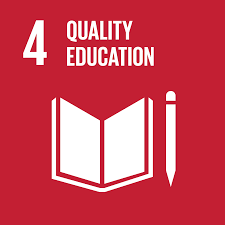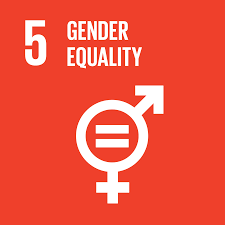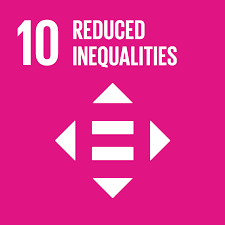
The Most Dangerous Numbers: Grades
- Jisoo

- Jul 14, 2020
- 5 min read
This article is focused on these Sustainable Development Goals:

Grades are just a few numbers but somehow, they hold the world for several students across the globe. The numbers put students in a spectrum that places each individual into two groups: successful and unsuccessful. Many say that being successful is getting into a high ranking university, as it opens the gateway for a brighter future. Hence, students try. They try to get into the Ivy League universities by never letting the pencil drop from their hand. On average, Korean high school students spend 16 hours a day studying, and studying on weekends becomes a necessity (GRRRL TRAVELER). Being a Korean high schooler myself, I feel privileged to live abroad. I cannot imagine how it would be like to study continuously and striving to survive in the competition. However, I do still question myself: to what extent can grades be fair?
No one wants to think they are biased. But here comes the truth: even the most dedicated teachers hold stereotypes and beliefs which affect students and their futures. These stereotypes and beliefs become as harmful as they turn out to be inevitable. We can take gender bias into consideration which connects with the Sustainable Development Goal 5: Gender Equality. For instance, educational research reveals that teachers are more likely to interrupt girls, less likely to direct their gaze towards girls while answering open-ended questions, and less likely to call girls to the front of the class to demonstrate (The Graide Network).
The problem of racial bias in education also becomes an issue. A great example can be found from the racial gap between white and black students in the United States. In 2014, the high school graduation rate for white students was 87 percent while for black students, the rate was 73 percent (National Center for Education Statistics). Personally, I have dealt with this problem because I am Asian. One of the most known stereotypes about Asians is that they are intelligent. Asians should be able to play all the instruments, they should excel in math and sciences, and so on. However, despite the fact that I am Asian, I am not good at math. After graduating from middle school, I was somehow placed in the math extended group, which caused me to ask the teacher how I was able to make it into the higher class. Her response was “You’ll be fine, it’s just math.” My final math grade when I completed my freshman year was 4/8 which confused her. It felt like she was thinking “All of her Asian friends were able to make it through but, why is she lagging behind?” All of this connects with the Sustainable Development Goal 10: Reduced Inequalities. The inequality amongst countries and races should be reduced as it becomes major concerning problems for students.
Money can play a role in manipulating grades, as well. For example, in less-developed countries (LEDCs), wealthier students can easily pay high amounts of money to change their grades. How does this become fair for students who work really hard?
Grades play a pivotal role in our current education paradigm, which is unfair. It may be a convenient measurement tool that easily manages, stores, and transmits. However, grades can be affected by the simplest reasons: the teacher’s mood, how long the student slept the night before, handwriting, etc. How can grades be fair? My conclusions are that grades can never be fair. Here comes another question: if grades can be never fair, why do we rely on them so much? Why are they so significant in our lives? Researchers found that students who left year nine with an average grade under 2.25 ran about three times the risk of committing suicide compared with those who had an average final grade of over 4.25 (Psych Central). Sadly, the very highest suicide risk was found in teens with incomplete grades. Low grades can cost a student’s life. Research and statistics are showing us that grades are biased and that students are struggling to achieve their successful position in society by getting higher grades. This problem lies under the Sustainable Development Goal 4: Quality Education.
Grades are causing these major problems in our society. If we already know about this, why do we continue on the same road without any change? Society constantly tells students to get the highest grades in order to get accepted into high ranked universities to carry on a successful carrier. However, students must have all the rights they deserve. They do not need to follow the pathway the society is leading them towards to but they can choose their own pathway. Students have the right to think and decide how their future will look like. The educational system students are going through comes with many faults and wrongs and our society knows that this is inevitable. Grades shouldn’t correlate to a successful future. Interestingly, only 23 out of America’s 400 richest have a high school degree and two dropped out of high school without going on to college (Forbes). If many people relate success with the amount of money earned, this information clearly shows that high grades do not give birth to success. Therefore, the grading system should change to allow more freedom for students to think and proceed with their future how they want it to be. Remember, change starts with you.
Works Cited
“10 Shocking Facts about Korean Schools.” GRRRLTRAVELER, 9 July 2020, grrrltraveler.com/10-facts-korean-school/.
“3 Reasons Grades Are Bad for Education - THNK School.” THNK, 22 June 2018, www.thnk.org/blog/3-reasons-grades-bad-education/.
Au-Yeung, Angel. “These Billionaires Made It Into The Forbes 400 Without Stepping On A College Campus.” Forbes, Forbes Magazine, 19 Oct. 2017, www.forbes.com/sites/angelauyeung/2017/10/19/high-school-billionaires-2017-forbes-400/.
Austin, Emma. “Teacher Bias: The Elephant in the Classroom.” The Graide Network, The Graide Network, 27 Aug. 2018, www.thegraidenetwork.com/blog-all/2018/8/1/teacher-bias-the-elephant-in-the-classroom.
Bonefeld, Meike, and Oliver Dickhäuser. “(Biased) Grading of Students' Performance: Students' Names, Performance Level, and Implicit Attitudes.” Frontiers, Frontiers, 21 Mar. 2018, www.frontiersin.org/articles/10.3389/fpsyg.2018.00481/full.
“Harvard EdCast: Unconscious Bias in Schools.” Harvard Graduate School of Education, www.gse.harvard.edu/news/19/11/harvard-edcast-unconscious-bias-schools.
Khan, Anjum. “Rights and Responsibilities of Students at Their School.” Jagranjosh.com, 13 Apr. 2018, www.jagranjosh.com/articles/rights-and-responsibilities-of-students-at-their-school-1523629235-1.
Pedersen, Traci. “Poor Grades Linked to Higher Risk of Suicide.” Psych Central, 8 Aug. 2018, psychcentral.com/news/2010/10/27/poor-grades-linked-to-higher-risk-of-suicide/20178.html#:~:text=Researchers found that students who, in teens with incomplete grades.
“Teen Suicide.” Child Trends, www.childtrends.org/indicators/suicidal-teens.
Tillotson, Dirk. “The Way We Grade Students Is Biased and Unsound: A Conversation on ‘Grading For Equity.’” Great School Voices, 16 Nov. 2018, greatschoolvoices.org/2018/11/way-grade-students-biased-unsound-conversation-grading-equity/.
Weir, Kirsten. “Inequality at School.” Monitor on Psychology, American Psychological Association, Nov. 2016, www.apa.org/monitor/2016/11/cover-inequality-school.
“Why Do Grades Hold So Much Power Over Our Children's Futures?” Education Reimagined, 7 June 2019, education-reimagined.org/why-grades/#:~:text=The GPA system is powerful,the high and low ends.&text=In fact, when many of,engage in high-quality learning.
authors, All, and Magnus Bygren. “Biased Grades? Changes in Grading after a Blinding of Examinations Reform.” Taylor & Francis, www.tandfonline.com/doi/full/10.1080/02602938.2019.1638885#:~:text=If there is bias in,and stratification patterns more broadly.&text=Grading bias may be negative,membership in certain social categories.






Comments